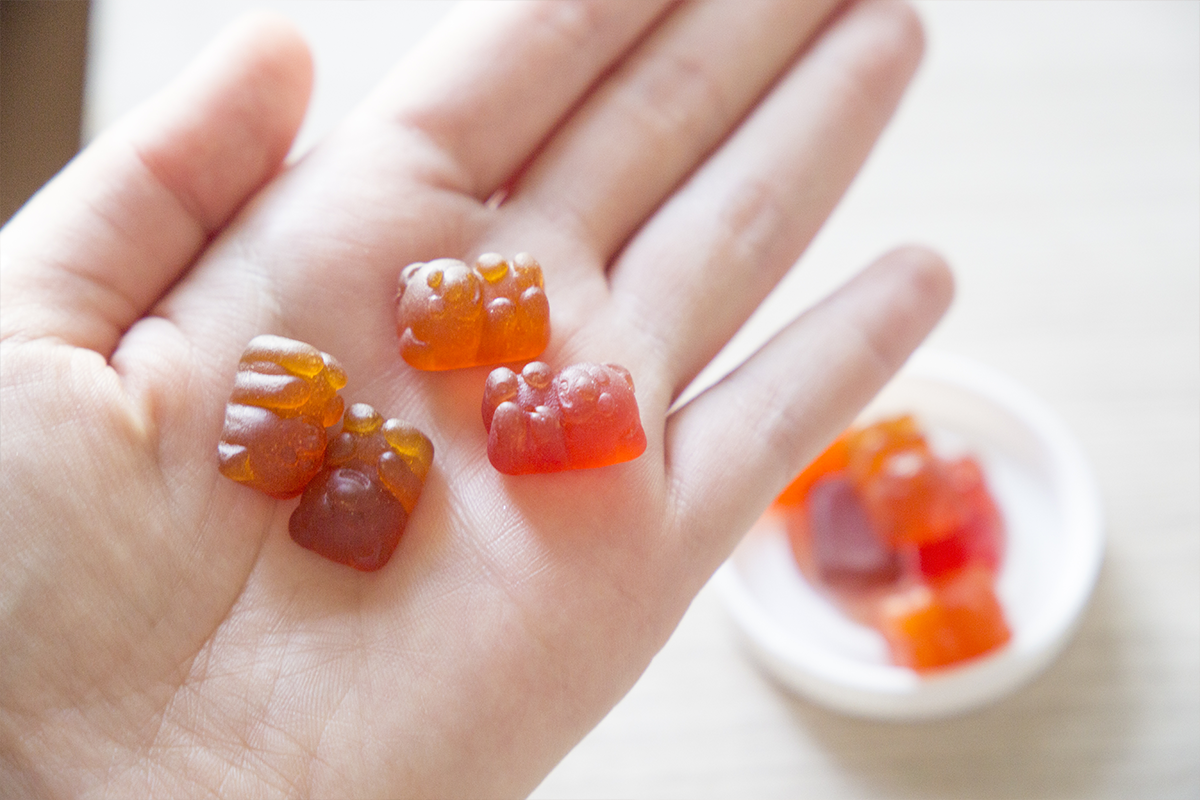Advertisement
Supplementing Your Child’s Diet
I am often asked by parents whether they should give a vitamin and mineral supplement to their children. My answer is “yes.” Children are notoriously picky eaters, leaving parents worried about their growth and development. As well, children today are exposed to an abundance of fast and processed foods with no nutritional value. A quality … Continued

I am often asked by parents whether they should give a vitamin and mineral supplement to their children. My answer is “yes.” Children are notoriously picky eaters, leaving parents worried about their growth and development. As well, children today are exposed to an abundance of fast and processed foods with no nutritional value.
A quality vitamin and mineral supplement, in addition to a nutrient-rich diet, should be thought of as “nutritional insurance,” ensuring your children are getting the vitamins and minerals they need to grow mentally and physically. It’s not too much to expect for coming generations and its your obligation.
Children need different levels of vitamins and minerals throughout their stages of development. Kids three years and younger require less fat-soluble vitamins such as A and E. These vitamins are stored in the body. Health-care providers often recommend liquid vitamin and mineral supplements specifically formulated for infants and young toddlers. The best formulas are available at health food stores. From ages four to 12, children’s requirements change and a quality vitamin and mineral supplement can help meet nutritional needs.
Look for the following in your older child’s vitamin and mineral supplement:
| Vitamin | Amount | Mineral | Amount |
| Beta carotene | 500 IU | Calcium | 65 mg |
| Vitamin A | 2,000 IU | Magnesium | 32.5 mg |
| Vitamin D3 | 200 IU | Potassium | 5 mg |
| Vitamin C | 75 mg | Iron | 2 mg |
| Vitamin E | 7.5 IU | Zinc | 1 mg |
| Vitamin B1 | 1 mg | Manganese | 0.5 mg |
| Vitamin B2 | 1.5 mg | Copper | 0.5 mg |
| Niacinamide | 5 mg | Iodine | 0.05 mg |
| Pantothenic acid | 5 mg | ||
| Vitamin B6 | 1 mg | ||
| Folic acid | 0.05 mg | ||
| Vitamin B12 | 5 mcg | ||
| Biotin | 5 mcg | ||
| *Remember that your vitamin and mineral supplement should not necessarily meet the recommended daily allowance because these allowances also include food consumption. When your child is eating whole foods she will get these necessary nutrients. | |||
Choosing a supplement for your kids can be confusing. The variety of products available on the market, including those that claim to be “improved” or “advanced,” is mind-boggling. To sort through this confusion, there are certain things to look for. First, select a high quality, solvent- and alcohol-free multiple vitamin and mineral supplement produced by a reputable manufacturer.
In order to avoid the excessive sugars often used in children’s supplements, select a product that has sucralose (a sweetening agent made from sugar) as a sweetener. Because sucralose is much sweeter than sugar, children can enjoy a sweet-tasting supplement without the drawbacks of the added sugar. Also, look for a formula that contains no artificial preservatives, colours, flavours, starch, milk products and wheat or yeast.
Another tip is to choose a product from a company that manufactures its own supplements. This allows for quality control from the purity of the raw materials to the final packaging. Also, the manufacturer should be able to guarantee the quality of the product and meet good manufacturing practice (GMP) standards.
The need for a vitamin and mineral supplement for your child will depend on a variety of factors: the quality of the diet; ingestion of substances that may adversely affect nutrient levels (such as caffeine in soda pop and sugar); and known and unknown health conditions like celiac disease and malabsorption syndromes.
Children who cannot tolerate pasteurized dairy products may be at risk of calcium deficiency, so parents need to be aware of the calcium content of a variety of vegetables (it’s high in cabbage and other members of the brassica family). Other nutrients most likely to be deficient in a child’s diet include iron, folic acid and vitamins A, C and B6.
Remember that vitamin and mineral supplements do not replace whole, unprocessed, organic food. Supplements are merely intended to augment the diet. Chewable vitamins are often easier for younger children. Vitamins can also be crushed and sprinkled over cereals or dissolved into milk or fruit juice. A high quality multiple vitamin and mineral supplement is safe when used as recommended.
Kid-Smart Supplements
Essential fatty acids (EFAs)can maximize brain power. They fall into two main groups, omega-3s and omega-6s, and since our bodies cannot produce these fats, they must be obtained from our diets.
The omega-6s are readily available in safflower and sunflower oil among other things and we are therefore not likely to be deficient in them. The omega-3s are found naturally in fish, wheat germ, flax seed oil, nuts and seeds and to a lesser degree in navy beans and oatmeal.
However, some reports have estimated that over half our population is deficient in the omega-3s. Children, especially those with picky eating habits, may be at particular risk. EFAs are crucial for proper development and function of the brain and nervous system. A deficiency has been linked to several emotional and mental disorders, including attention-deficit disorder, depression and schizophrenia.
It is possible to get adequate EFAs through a well planned, healthful, vegetarian diet. But if dietary strategies are not working, consider a supplement. Quality fish oil or cold-pressed flax seed oil capsules and liquids are readily available in health food stores.




